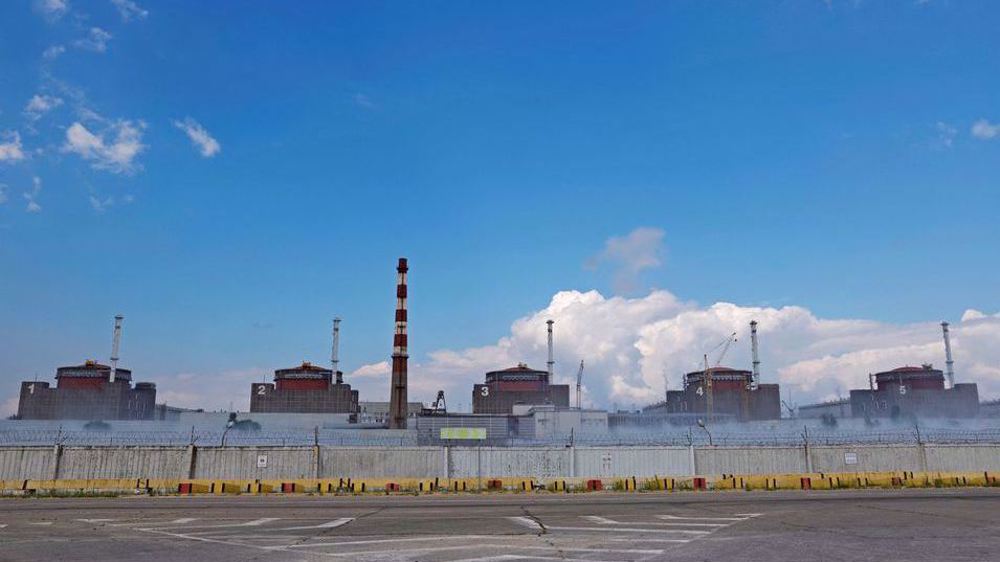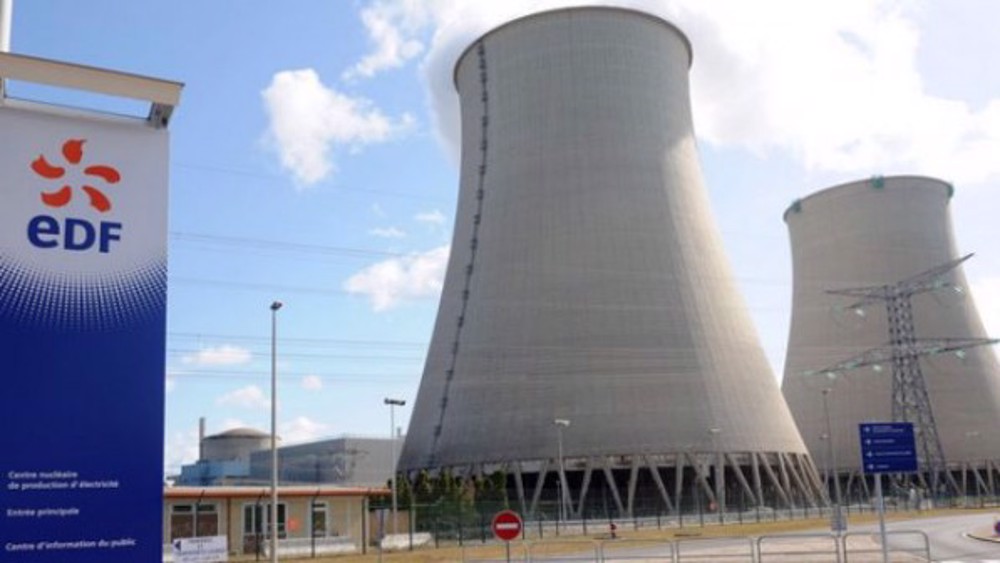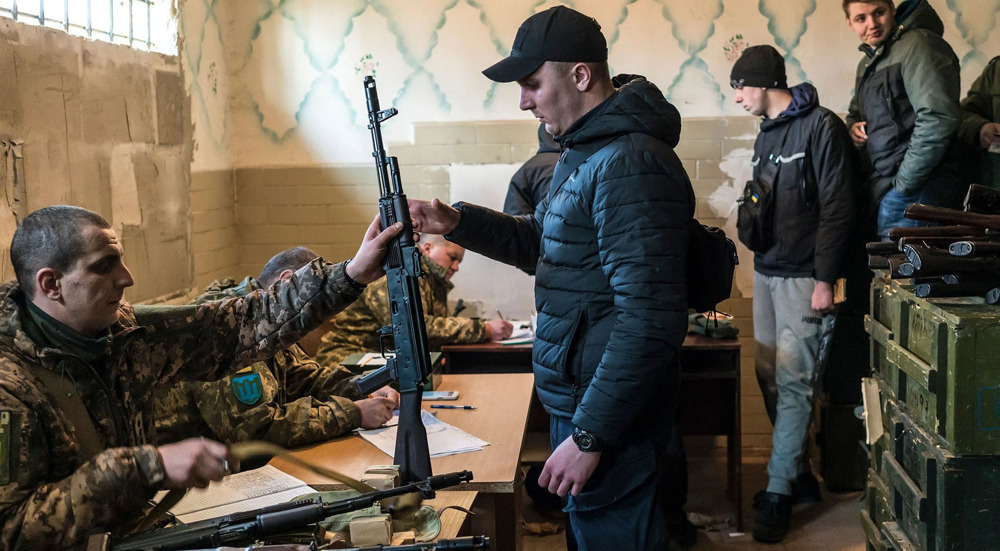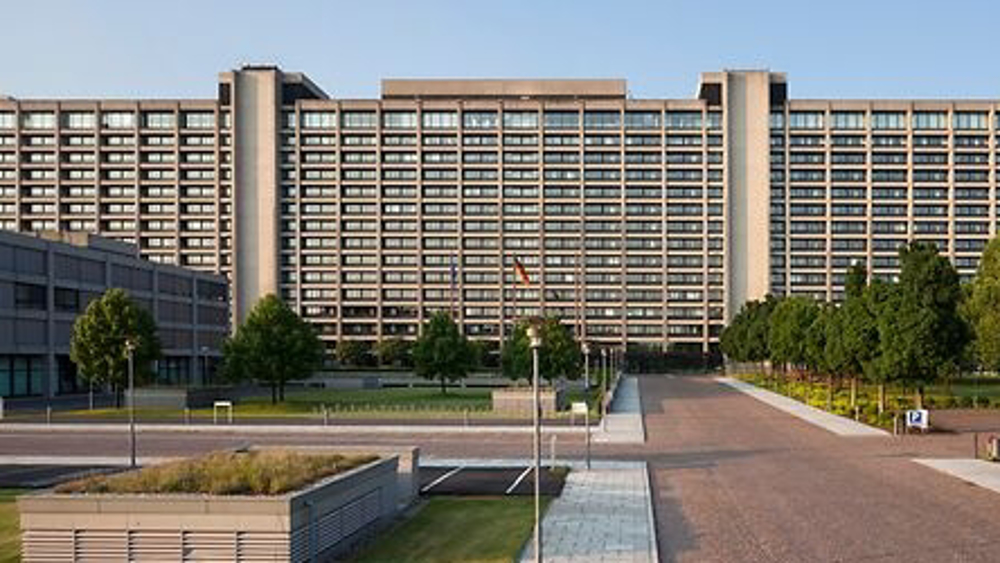Germany: Residents told to ready for possible radioactive fallout
German residents have been ordered to be prepared for nuclear emergencies amid the diplomatic fallout with Russia over the conflict in Ukraine.
Germany's President of the Federal Office for Radiation Protection warned on Wednesday that the country's residents needed to be prepared against dangerous radioactive particles left in the air and water after a nuclear explosion or leakage at a nuclear power plant.
In an interview with the newspapers of the Funke media group, Inge Paulini said the ongoing military conflict between Moscow and Kiev had “made it clear to the general public that we have to be and remain prepared for a wide variety of nuclear emergencies,"
The head of the country’s radiation protection office warned that the conflict in Ukraine could cause a wide range of disasters in neighboring countries and the Germans must prepared for nuclear emergencies.
Radiation does not stop at the borders and we need to be ready, she insisted.
Paulini criticized Germany’s neighbors who have not phased out nuclear energy from their power grid. “On the contrary, many of our neighboring countries are planning new power plants,” she said, warning of the risks of accidents at these facilities, which could affect all of Europe.
In this regard, Russian President Vladimir Putin has warned European leaders that Ukraine's attacks on Zaporizhzhia nuclear plant could result in an environmental catastrophe.
Read more:
'Ukraine risking another Chernobyl': Russia warns over fate of Zaporozhskaya nuclear power plant
Ukraine’s attacks on nuclear plant could be ‘catastrophic,’ Putin warns Macron
Kremlin: Russia has no plan to leave Zaporizhzhia nuclear plant in southern Ukraine
In the meantime, Russia has repeatedly given the Europeans assurance that it does not intend to use its nuclear arsenal to achieve its objectives in Ukraine.
The Kremlin has referred to its nuclear doctrine which only allows the use of nuclear weapons in a retaliatory fashion or in the case the country is faced with an existential threat from conventional warfare.
In addition, the Kremlin has stated that the Russian forces have so far succeeded in making significant progress towards “demilitarizing” Ukraine, one of the main objectives declared by Russia when Moscow launched its military campaign earlier this year.
“It can be stated that there is significant progress towards demilitarization,” Kremlin spokesman Dmitry Peskov said last week while addressing a news briefing.
The spokesman’s remarks came on the heels of comments by Putin, who noted that Ukraine’s defense potential had dropped close to zero.
Upon the start of Russia’s special military operation in Ukraine in February, Putin declared that Moscow’s objective was to demilitarize the pro-Russia regions in the eastern parts of the country.
VIDEO | 'Land of Angels' sweeps 44th Fajr Film Fest. awards
Iran dismisses claims of detainee rights violations as ‘psychological warfare’
VIDEO | The business of humanity
VIDEO | 47th anniversary of Islamic Revolution marked in Russia
Two US Navy ships collide near South America amid Trump buildup
Over 2,000 Britons served in Israeli military during Gaza genocide: Report
Houthi: Iranian, Yemeni revolutions inspire Islamic nation in face of enemy plots
Iran defeating sanctions for decades since Islamic Revolution victory












 This makes it easy to access the Press TV website
This makes it easy to access the Press TV website